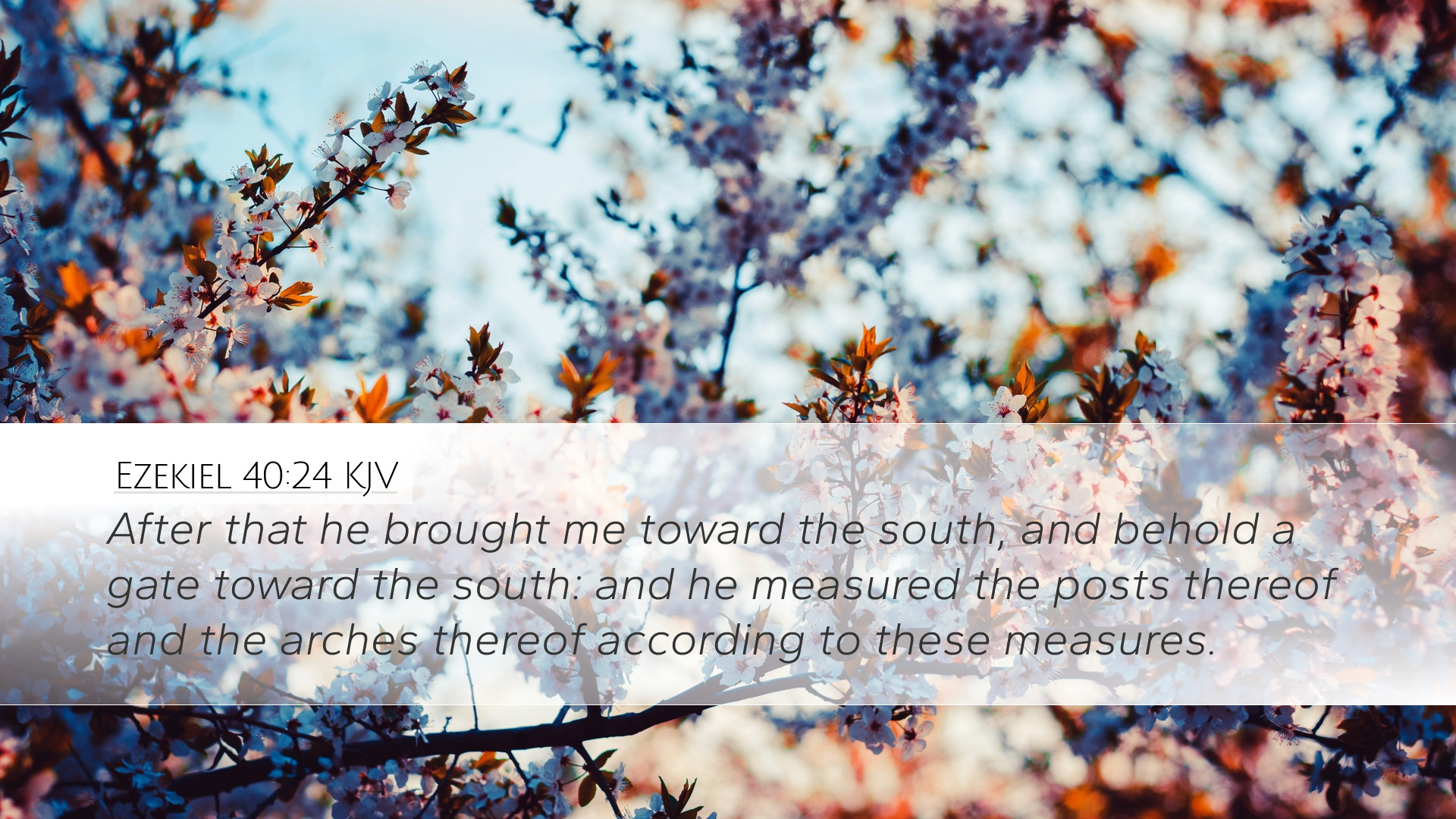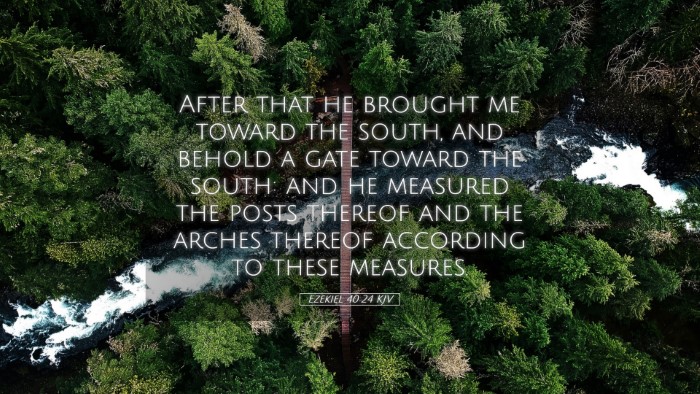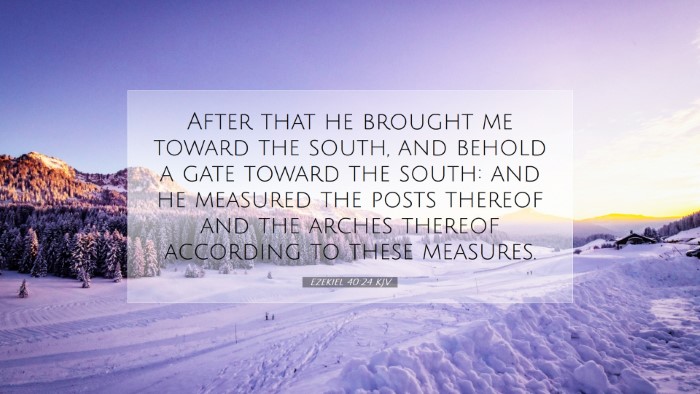Ezekiel 40:24 Commentary
Bible Verse: "And after that he brought me toward the south, and behold a gate toward the south: and he measured the posts thereof and the arches thereof, according to these measures."
Introduction
The passage of Ezekiel 40:24 serves as part of a divine vision given to the prophet Ezekiel, wherein the structure and measurements of a future temple are meticulously described. This vision not only emphasizes the significance of divine order and holiness in worship but also reflects God's promise of restoration and His desire to dwell among His people. In this commentary, we will explore insights from Matthew Henry, Albert Barnes, and Adam Clarke to illuminate the theological and practical implications of this verse.
Contextual Overview
The entire chapter of Ezekiel 40 introduces the visionary account of a new temple and the accompanying rituals that will take place within it. This section of Ezekiel remarks on the importance of a physical place for worship, highlighting themes of separation, holiness, and divine presence. Understanding the context of Israel's exile and the significance of the temple in the life of the nation is critical to interpreting this passage.
Insights from Commentaries
-
Matthew Henry's Commentary
Henry emphasizes that the vision of the temple signifies a restoration of the covenant community. The south gate mentioned in this verse represents access and openness to the people of God. He notes the systematic measurements reflect God’s order and the assurance that divine presence will be manifest in a restored worship environment.
-
Albert Barnes' Notes
Barnes provides a detailed analysis of the significance of measuring the posts and arches. He suggests that these elements symbolize stability and strength, crucial for a place dedicated to God. Moreover, Barnes points out that the act of measuring indicates divine sovereignty over all aspects of worship, reinforcing that God is the architect of His own dwelling.
-
Adam Clarke's Commentary
Clarke deduces that the act of measuring the gate points to the careful preparation required for worship. He notes that each detail, even the dimensions, symbolize the importance of reverence in approaching God. Clarke argues that the specific references to the gates suggest that there should be clear paths of access to God, inclusive for all who seek Him.
Theological Reflections
This verse holds profound theological significance. The gab or "gate" in a temple context serves not only as a physical entry point but also as a metaphor for spiritual access. The idea of God's presence in a specific place commands attention to His holiness and the appropriate manner of entering into a relationship with the Divine. It illustrates the need for careful preparation and a humble approach to worship, reinforcing that God is not only a God of personal relationship but also a God who values order and structure in communal worship.
Practical Applications
For pastors and church leaders, Ezekiel 40:24 is a reminder of the importance of creating spaces that encourage worship and spiritual encounters with God. The significance of the measurements can inspire a careful and thoughtful approach to the arrangement of worship space, ensuring that it facilitates a sense of awe and reverence.
For students and scholars, this scripture exemplifies the depth of prophetic literature and the intricate ways in which Old Testament scriptures foreshadow the New Covenant reality brought through Jesus Christ. Understanding the temple's symbolism aids in grasping the fullness of how Christ embodies the true temple and the means by which believers now approach God.
Conclusion
Ezekiel 40:24, while a seemingly straightforward description of a gate, reveals layers of meaning regarding God's desire for a communal space for worship. Through the insights from revered commentaries, it underscores the importance of holiness, access, and divine presence. The careful dimensions serve as a reminder of God’s meticulous nature in crafting environments for His people to engage with Him. Believers are called not only to enter but also to recognize the sacredness of the journey towards divine communion.


